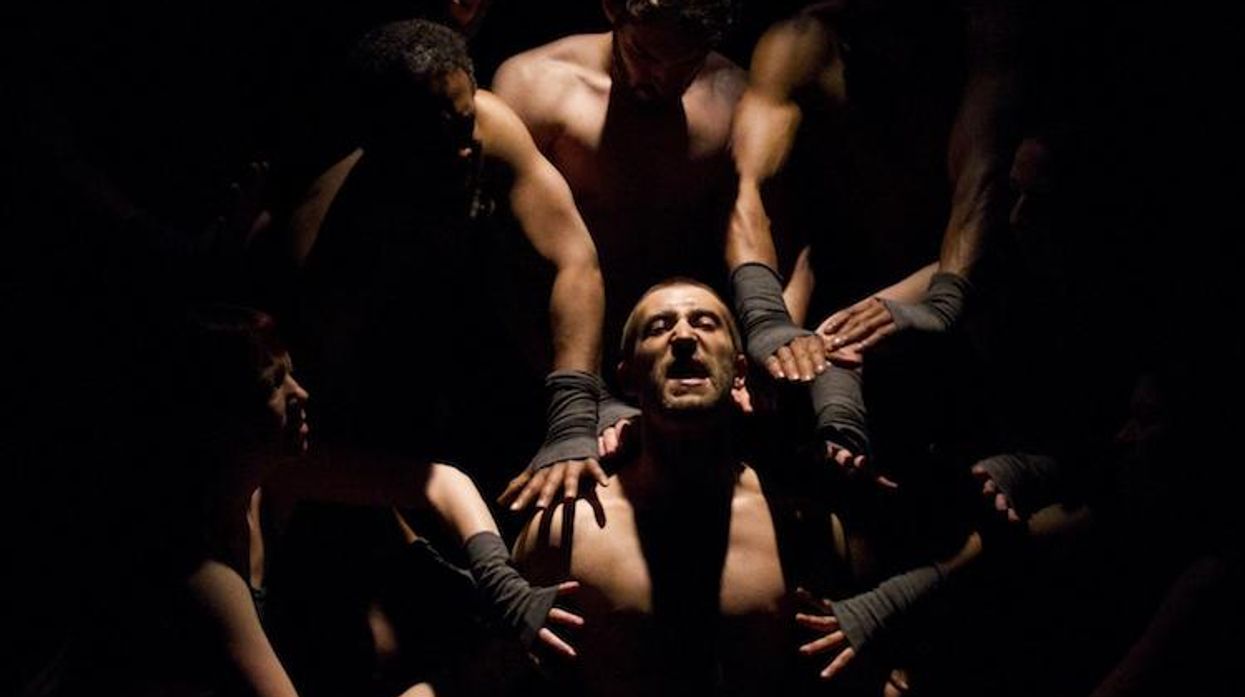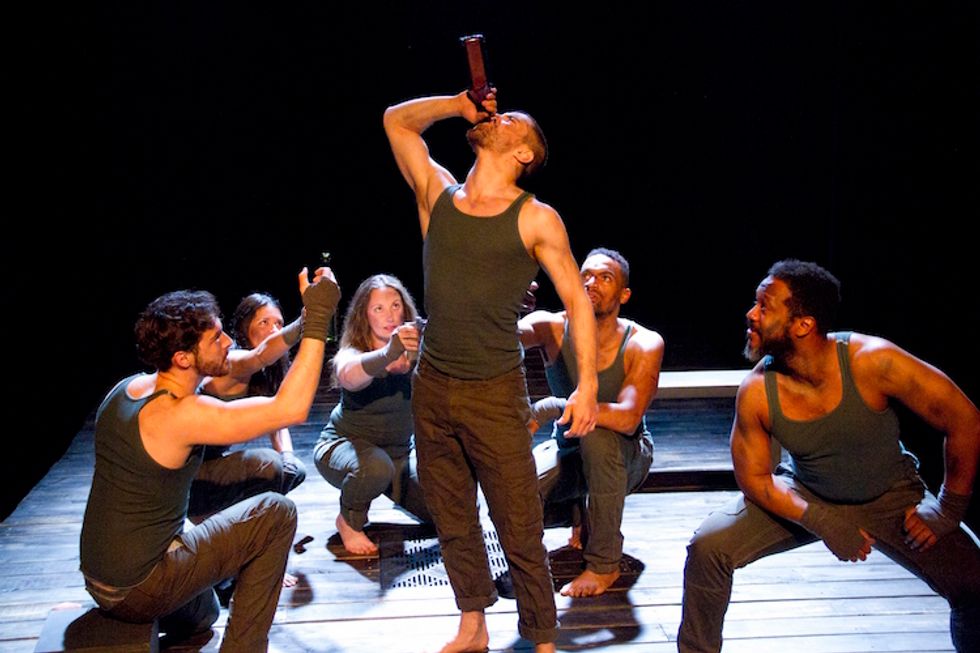Non-topics
A Late Summer Dream: Two Legendary Playwrights Take Over Provincetown

The annual Provincetown Tennessee Williams Theater Festival includes works by Eugene O’Neill.
September 09 2016 9:11 AM EST
By continuing to use our site, you agree to our Privacy Policy and Terms of Use.

The annual Provincetown Tennessee Williams Theater Festival includes works by Eugene O’Neill.
Photo of Eugene O'Neill's The Hairy Ape by Dave Sarrafian
As this summer comes to a close, Provincetown revel in its reputation as the birthplace of American theater. Both Eugene O’Neill and Tennessee Williams crafted groundbreaking plays near the sand dunes and waters of the seaside haven, and now the annual Provincetown Tennessee Williams Theater Festival will stage works by O’Neill from the perspective of Williams for its eleventh season. This summer’s offerings include O’Neill’s The Hairy Ape and Desire Under the Elms, Williams’ In the Bar of a Tokyo Hotel, and more.
Though the festival including Williams’s name in its title, it was never intended to be a strictly Williams affair. “From the very beginning we wanted to redefine American theatre around Tennessee Williams, away from Eugene O'Neill” says curator David Kaplan. Scholars are quick to point out that the critically maligned later works of Williams have been notoriously overlooked. “Part of that is critics, part of that is homophobia, and part of that is a deliberate consolidation of Eugene O'Neill as the iconic American playwright,” adds Kaplan. “After 10 years, I think our audience now has enough of a Williams context to be able see aspects of O'Neill, by the light of Tennessee Williams, that they wouldn't ordinarily have paid attention to, or wouldn’t have thought of as significant.”

Both Williams and O’Neill are titans in the American theater canon. “We know these writers best by their more realistic works, and that is often what their contemporary audience wanted from them,” says director of The Hairy Ape (pictured above) Brenna Geffers. “Looking at their work side-by-side, I think we can really appreciate the fierce, brave, and deeply imaginative souls that were carving out the foundation of contemporary American theater.”
Like all great art, Williams and O’Neill’s plays are influenced by contemporary zeitgeists. A trademark of Williams’ later works is his contempt for capitalism; O’Neill’s plays often deal with class inequality. Both of these topics are currently flooding the global conversation. “When I first started working on The Hairy Ape, I really wanted O’Neill to offer the same solutions to class inequality that I believe in,” says Geffers. “It was tricky for me to come to terms with his criticism of unions and of socialism. Playwrights don’t give you what you want and they do not provide mouthpieces for you. But they are more than willing to get into a heated debate with you.”
When presented with O’Neill's works from the 1920s alongside Williams’ later projects, audiences will see how both playwrights provoked audiences. “We are doing plays that challenged the status quo of politics, challenged the status quo of identity, and challenged the status quo of what is a good play,” says Kaplan. “I think that is important to remember when you are working with text that has a societal issue at its forefront, especially texts that were written in the past, you, the writer, and all of the other artists collaborating on a piece are going to offer up your points of view to an audience that in turn will have their own points of view,” adds Geffers. “Hopefully, somewhere along the line, everyone considers life more deeply at the end of the day.”
Provincetown Tennessee Williams Theater Festival takes place September 22-25. Visit the website for more information and tickets.